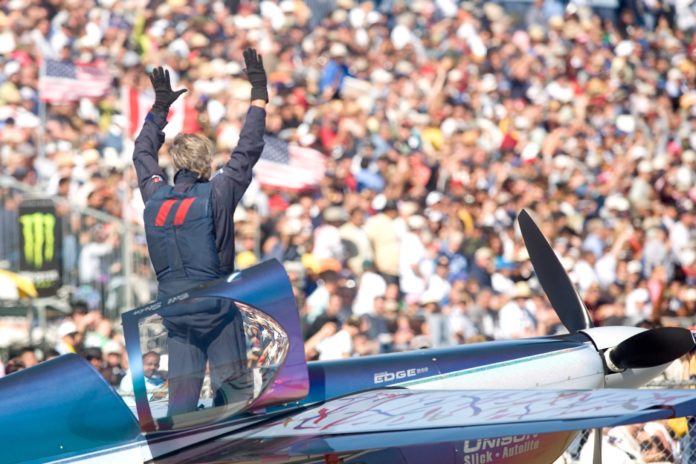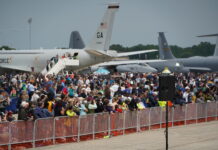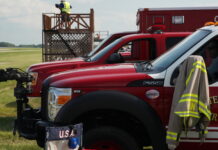When I reflect on what I’ve done, the people I’ve met and the lessons I’ve learned during my time in the air show business, I am struck by the one thing that, from my perspective, defines our industry: the individual passion that so many ICAS members bring to their involvement in this business.
The people, the excitement, the airplanes, and the crowds are infectious. Not every person exposed to air shows is affected in the same way, but – for those that catch the air show “bug” – the impact is often permanent. In fact, it’s not likely that there would BE an air show business were it not for the time and commitment of these people…tens of thousands of them throughout the United States, Canada and the rest of the world.
I’m thinking of the parking attendant that I met some time ago at the Cleveland National Air Show. For many years, he has shown up at a particular parking lot to help direct traffic. He doesn’t need to be reminded ahead of time. He doesn’t need to be told what to do. He just shows up.
Or the crew chief who finds his own way to air shows all over the continent each weekend to help clean the canopy, pump the smoke oil and schlep the performer’s “stuff.”
Or the television reporter who produced a news segment on a local air show, got infected by the bug and slowly found herself becoming a permanent, vital part of our community.
The cumulative impact and value of all those people and passion are difficult to quantify. But, intuitively, we know that it is that enthusiasm, energy and dedication that fuels the air show business.
The challenge, of course, is finding the right balance between passion and professionalism.
NASCAR, the National Football League, and rock and roll concert venues are – first and foremost – profit-making businesses. I believe that the difference between air shows and these other entertainment industries reflects well on air shows. But, the spectators who attend and the corporate sponsors who support these other spectator events expect a high level of professionalism. And, like it or not, our events are routinely compared to those events.
Most of the people who consider attending an air show will never know that the organizing committee is comprised of a dozen hardworking people who have sacrificed their nights and weekends to make the event possible. Nobody will ever tell them that the air show pilot they watch today will be commuting to an airport 400 miles away in the morning to fly a 737 for a “major American airline.” When they compare our events to baseball games, Broadway plays and theme parks, they will make their buying decision based on whether the event offers excellent entertainment at a fair price.
Similarly, prospective corporate sponsors are not familiar with how air shows are planned and conducted. And they are not particularly interested. They have come to expect a certain level of performance from the events that they sponsor. Air shows will either meet those expectations and continue to function as useful partners or they will not and sponsorship investments will be directed to other events that produce an easier and more reliable return on investment. Prospective sponsors do not share our passion for aviation and air shows. From their perspective, we exist as a tool to meet their marketing goals.
In the events business, competition is fierce for these sponsorship dollars. The NASCAR model – beat up and battered as it might have become during the last several years – is built around showcasing the sport’s many sponsors. Roger Goodell, the commissioner of the National Football League, has had some public relations miscues during the past year, but he is secure in his position largely because of the manner in which he has attracted more fans to the sport and made big money from and for the NFL’s corporate sponsors.
Are these models that the air show community should emulate? I don’t think so. But we don’t have to be like them to learn from them. And, fortunately, there are segments of our industry that are demonstrating that passion and professionalism can coexist peacefully and synergistically. There are ICAS members demonstrating that the enthusiasm of the people who work in this business – still one of the industry’s most important resources — can be used to produce excellent events that compete effectively against the often better funded and better staffed events and venues that vie for our customers’ and sponsors’ dollars.
And this, in my opinion, will be the ongoing challenge that we will face during the next decade as the air show industry evolves and matures: maintaining the emotion, commitment and spirit of the individuals involved in the air show community as we work to professionalize the business. They are not mutually exclusive, and getting the balance right will be vital to the continued growth and success of our air show industry.








